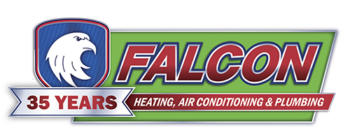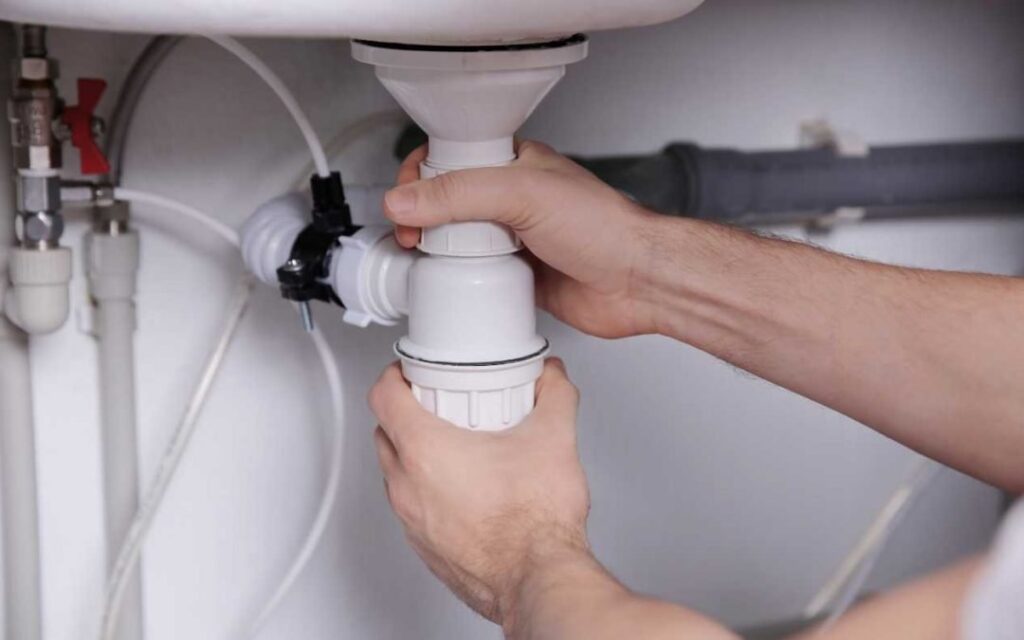Living in Chantilly offers a charming lifestyle, but maintaining a healthy plumbing system is crucial for any homeowner. By taking preventative measures, you can avoid costly repairs, disruptions, and ensure the comfort of your home.
Preventative Measures by Plumbing Issue
Clogged Drains:
Prevention Tips:
- Install drain screens in sinks and showers to catch hair and debris. Look for brands like Zip-It Drain Clog Blocker or TubShroom.
- Avoid pouring grease down the drain. Grease cools and solidifies, causing blockages. Instead, let grease cool in a can, then scrape it out and dispose of it in the trash.
- Regularly clean your garbage disposal with commercial products or natural methods like ice cubes and lemon peels. You can also try a disposal cleaning product like BioClean or Green Gobbler Garbage Disposal Cleaner.
- Dispose of wipes and feminine hygiene products properly (not in the toilet). They’re not designed to break down in sewer systems and can cause major clogs.
Seasonal Considerations:
- During summer months with increased humidity, consider using drain cleaners designed to prevent soap scum buildup. Products like Liquid Plumbr or CLR Power Drain Cleaner can help with preventative maintenance. Be sure to follow the manufacturer’s instructions carefully.
Leaky Faucets:
Prevention Tips:
- Tighten loose fittings regularly with a wrench (avoid over-tightening).
- Replace worn-out washers when dripping occurs (DIY or call a plumber). Leaky faucets waste water, so address them promptly.
- Consider installing low-flow faucets to conserve water and potentially reduce wear and tear on parts. Look for brands like Moen or Delta which offer water-efficient options.
Seasonal Considerations:
- Before winter arrives, insulate exposed pipes to prevent freezing and potential leaks caused by expanding ice. You can find pipe insulation at most hardware stores, like Home Depot or Lowe’s.
Running Toilets:
Prevention Tips:
- Schedule regular inspections by a qualified plumber to identify potential problems early on, like worn-out flappers or malfunctioning fill valves.
- Replace worn-out flappers and fill valves promptly when leaks occur. A simple DIY fix can save water and money. Look for replacement parts at hardware stores or plumbing supply stores.
- Consider installing a dual-flush toilet to save water with a partial flush option. Many brands, like Kohler or American Standard, offer dual-flush models.
Additional Tip:
- Listen for any unusual noises coming from your toilet, as this could indicate a problem with the flapper or fill valve needing attention.
Water Heater Issues:
Prevention Tips:
- Have your water heater flushed by a professional plumber every 1-2 years to remove sediment buildup that reduces efficiency and lifespan.
- Invest in a water softener if hard water is a concern in your area (Fairfax County Water Authority website can provide information on water hardness). Hard water can lead to mineral buildup and reduce water heater efficiency. Look into water softener brands like Water Right or Culligan.
- Drain and refill your water heater periodically as per manufacturer’s instructions. This helps remove sediment buildup and maintain efficiency.
- Consider wrapping your water heater tank with an insulation blanket to improve efficiency and reduce energy costs. You can find water heater insulation blankets at most hardware stores.
Additional Tip:
- If your water heater is nearing the end of its lifespan (around 8-12 years), plan for a replacement before it fails completely. A proactive approach avoids emergencies and allows for a smoother transition. Research water heater brands like Rheem or Bradford White to find a good fit for your needs.
When to Consider a Water Softener for Your Home
Hard water, characterized by high mineral content, can wreak havoc on your plumbing system in various ways. Mineral buildup can reduce water heater efficiency, clog pipes, and shorten the lifespan of fixtures. If you suspect hard water might be an issue in your home, getting a water test is the first step. This will help determine the level of hardness and guide you in selecting a water softener with the right capacity to address your specific needs.
Here’s a breakdown of the key factors to consider when choosing a water softener:
- Water Hardness: Get your water tested to determine the level of hardness. This will help you choose a softener with the appropriate capacity to handle your specific needs. The Fairfax County Water Authority website can provide information on water hardness in your area.
- Grain Capacity: Water softeners are rated by their grain capacity, which refers to the number of grains of hardness they can remove before needing regeneration (recharging with salt). Higher grain capacity is needed for harder water or larger households with higher water usage.
- Regeneration Frequency: Consider how often you’re willing to replenish the salt supply and how much water the regeneration process uses. Water softener systems typically offer various regeneration cycles, impacting water and salt usage.
System Types: There are two main water softener system types:
Salt-based softeners: These are the most common type and use salt pellets to remove hardness minerals. They are generally more affordable but require regular salt purchases and can add sodium to your water supply.
Salt-free softeners: These systems use a different technology, like potassium chloride or electromagnetic fields, to address hardness. They don’t add sodium to your water but may be less effective or more expensive.
Additional Tips:
Research water softener brands: Look for reputable brands like Water Right, Culligan, or Kinetico that offer various models and capacities.
Consult a plumber: A qualified plumber can assess your water hardness, water usage, and budget to recommend the most suitable water softener system for your Chantilly home.
By carefully considering these factors, you can choose a water softener that effectively addresses hard water concerns and ensures the longevity of your plumbing system.
Why Fall and Winter Bring More Plumbing Problems
There’s usually a rise in plumbing calls during the fall and winter months in Chantilly. This can be attributed to a few reasons:
- Decreasing Temperatures: As temperatures drop, the risk of pipes freezing and bursting increases. This can cause significant water damage and costly repairs.
- Neglecting Seasonal Maintenance: People are less likely to think about outdoor hose bibs and sprinkler systems in the colder months. Failing to disconnect and drain these hoses can lead to freezing and potential bursts.
- Increased Indoor Water Usage: With colder weather, we tend to use more hot water for showers, laundry, and heating our homes. This can put a strain on your plumbing system and expose any underlying weaknesses.
Here’s a reference from the American Public Works Association that highlights how cold weather can impact plumbing systems.
By taking preventative measures and performing regular maintenance throughout the year, you can significantly reduce the risk of plumbing problems in your Chantilly home, regardless of the season.
What Else Should Never Be Flushed?
- Flushable Wipes: Despite their name, flushable wipes don’t break down easily and can contribute to clogs in your sewer system.
- Paper Towels and Feminine Hygiene Products: These items are not designed for toilets and can cause major blockages.
- Coffee Grounds and Eggshells: These items can create clogs in your pipes. Dispose of them in the trash.
- Grease and Oil: As mentioned earlier, grease and oil solidify in your pipes, causing blockages.
- Chemicals and Medications: Unwanted medications should never be flushed down the toilet. They can contaminate the water supply and harm the environment. Look for safe disposal options through pharmacies or take-back programs.
- Cigarettes: Cigarette butts don’t dissolve in water and can clog your pipes, causing backups and frustration. Dispose of them properly in an ashtray or other designated receptacle.
By following these simple tips and maintaining a proactive approach, you can ensure your Chantilly home’s plumbing system functions smoothly for years to come.
Your Trusted Plumber in Chantilly
For over 35 years, Falcon Plumbing has been the trusted choice for homeowners in Chantilly and the surrounding areas. Our experienced and licensed plumbers are equipped to handle any plumbing issue, big or small. We offer a wide range of services, including:
- Leak repair
- Drain cleaning
- Toilet repair
- Water heater installation and repair
- Garbage disposal repair
- And much more!
We understand that plumbing problems can be stressful, so we’re committed to providing prompt, reliable service at competitive prices. Contact Falcon’s Chantilly plumbers today for all your plumbing needs.

